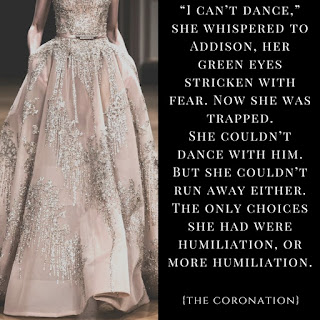Welcome to July, everyone! We're halfway through 2017. HALF. WAY. So it would be a great time to reflect and update, share my goal progress, plan out the rest of the year, send out my June newsletter ... but nope. I've been
binge re-watching
Downton Abbey with my sista and I'm about to go watch yet another episode that will probably make me cry. So here's a writerly, fangirly, spoiler-free post on Downton.
This show basically marks an entire era in my life and it will always be the most dear thing to me. Re-watching it has cemented it in my heart for eternity, even if it make me cry more than is healthy. But look. It has taught me
so much as a writer. Julian Fellowes is goals, okay?
1 // Conflict can be called for
This show is sooo dramatic. So much conflict. My Mom can't always handle the soap-opera nature of the gazillion storylines, but I really don't mind it in this instance, because the drama is handled so well! Very rare is it for me to roll my eyes because it seems like they're peppering the story with more conflict just because the writers enjoy being dramatic. Okay, so certain characters having a dozen failed romances or ten hard blows seems a little overblown. But does it evoke emotion and further the overall plot? Yes and yes. So use that conflict to make your readers sweat. They'll cheer all the more when you reach the happy ending.
2 // Historical settings are awesome
I love the historical aspect to Downton Abbey! It begins in 1912 with the sinking of the Titanic and doesn't end until six seasons and something around 17 years later. (I think.) Watching the change that came during that era is extremely fascinating. Women's rights, World War I, motorcars, jazz, and to a large degree the loss of the class system. I like the in-depth look that shows the gradual change. Yes, it takes a lot of research. Knitting your plot to its present time adds so much, though! Even if that present time is today.
3 // Generations are important storytelling devices
Part of the reason the historical changes that come about are so fascinating is because you get to see multiple generations (and classes) react. For example, the grandmother feels much differently about swivel chairs than does the middle class lawyer. The grandmother is often unsettled by the changing times, but is also very levelheaded in who she sides with at every dinner table argument. Having characters of different ages allows for differing perspectives in almost every conversation ;) I think we could use more of that, especially in genres for targeted age ranges. Why does no YA book include grandparents, hm?
4 // It is possible to follow two dozen characters at once
I'm not kidding. Downton follows so many characters at once. There's around 10 servants and 8 upper class family members being followed at any given time. That easily means a main upstairs and a main downstairs plot line with several tiny ones that only need a few minutes' screen time. But it's always such a beautiful balance, and it means there's something worth watching for every viewer in every episode :) It makes the plot so masterful, though I can't even imagine the work it takes from the writers.
5 // Dialogue is the key to everything
The dialogue. *heart emoji* Every 45 minute episode has literally 10+ quotable lines. And not quotable just because they're catchy, but because they're deep and thought-provoking and witty and insightful. Characters don't have to be shallow! Everyone has something meaningful to say about something. Do we waste words in real life? Yes. LOTS of words. But your characters operate on a compressed timeline for a purpose. So put the dialogue to good use! I love something 100x more if it has dialogue that makes me giggle, think, and want to shout "yes!!" After all ...
6 // Details are an excellent finishing touch
In a television show, details can be visual. The embroidery. The architecture. The hairdos. The hors d'oeuvres. Just a panning camera with the theme song can make me grin. Who am I kidding, a photo will do the trick. Getting to see the work (or lack of work) that goes into all of the details crimping hair is hard makes them all the more precious. When writing, details help paint a picture in your readers' minds. Don't forget to use description and mention the little things people will connect to and adore.
7 // Misery should be worthwhile
Downton Abbey has a lot of reality. It explores the honest misery and heartfelt delight of every character introduced. And even when the characters do something shocking and I'm afraid the entire focus of the series will spiral into promoting the morally wrong ... it doesn't. Downton has scandal and evil. But for the most part, that is how it's presented. And for every element of that they introduce, there are consequences, and it becomes a vital part of who that character is. I don't want to go as far as saying you can put anything in your stories if it has a purpose ... but I will say you shouldn't put in your stories if it doesn't have a purpose.
*all pictures retrieved from Pinterest*
~~~~~
The question of the day is obviously have you watched Downton Abbey?? ((If you did and you didn't like it, I'll try to forgive you. But you'd be wiser not to tell me that at all.)) On a wholly unrelated note, what are your plans for Independence Day?























